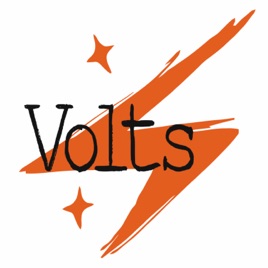
Advertise on podcast: Volts
Rating
4.8 from
Country
This podcast has
226 episodes
Language
Publisher
Explicit
Yes
Date created
2021/01/12
Average duration
65 min.
Release period
5 days
Description
Volts is a podcast about leaving fossil fuels behind. I've been reporting on and explaining clean-energy topics for almost 20 years, and I love talking to politicians, analysts, innovators, and activists about the latest progress in the world's most important fight. (Volts is entirely subscriber-supported. Sign up!) www.volts.wtf
Podcast episodes
Check latest episodes from Volts podcast
Nuclear? Perhaps!
2024/02/21
In this episode, I speak with Jigar Shah (head of DOE’s Loan Programs Office) about all things nuclear, including its recent performance, the strategies that could revive and accelerate it, new nuclear technologies and what small modular reactors actually are, and the role that nuclear will play in a decarbonized economy.
This is a public episode. If you’d like to discuss this with other subscribers or get access to bonus episodes, visit www.volts.wtf/subscribe
more
The Democrats' new consensus bill would supercharge transmission
2024/02/14
In this episode, Reps. Sean Casten (D-Ill.) and Mike Levin (D-Calif.) discuss their Clean Electricity and Transmission Acceleration Act, explaining where Democrats have found consensus around transmission permitting and community engagement.
This is a public episode. If you’d like to discuss this with other subscribers or get access to bonus episodes, visit www.volts.wtf/subscribe
more
The current state of unions in America
2024/02/09
In this episode, journalist Hamilton Nolan shares about his upcoming book The Hammer, a deep dive into the current tattered state of unions in the US and the prospects for their future.
This is a public episode. If you’d like to discuss this with other subscribers or get access to bonus episodes, visit www.volts.wtf/subscribe
more
Another hot rocks company gets in the storage game
2024/02/07
In this episode, I interview Fourth Power CTO Asegun Henry and CEO Arvin Ganesan, who bring high-profile experience in energy research, policy, and regulation to their new and promising thermal storage startup.
This is a public episode. If you’d like to discuss this with other subscribers or get access to bonus episodes, visit www.volts.wtf/subscribe
more
One easy way to boost the grid: upgrade the power lines
2024/01/31
Upgrading power lines — “reconductoring,” in the biz — is a straightforward way to boost the capacity of the electrical grid by enabling it to transmit more power and leak less of it. In this episode, TS Conductor CEO Jason Huang and researcher Emilia Chojkiewicz speak to the great potential of reconductoring, if balky utilities can be convinced to deploy the new technology.
This is a public episode. If you’d like to discuss this with other subscribers or get access to bonus episodes, visit www.volts.wtf/subscribe
more
Electrifying battery recycling
2024/01/24
Given the trajectory of the electric vehicle industry and the expected lifespan of an EV’s lithium-ion battery, the US is only a few years out from needing large-scale, cost-effective, decarbonized ways to recycle batteries. In this episode, Steve Cotton, CEO of Aqua Metals, describes regenerative electro-hydrometallurgy — the new battery recycling method that’s not only fun to say, but run on clean, cheap renewable electricity too.
This is a public episode. If you’d like to discuss this with other subscribers or get access to bonus episodes, visit www.volts.wtf/subscribe
more
Michigan targets clean electricity and faster permitting
2024/01/19
In this episode, Michigan State Senator Sam Singh details the ambitious clean energy policies that have been enacted since Democrats won a legislative trifecta in 2022, including some bold reforms of clean-energy permitting.
This is a public episode. If you’d like to discuss this with other subscribers or get access to bonus episodes, visit www.volts.wtf/subscribe
more
Transitioning off of fossil gas in Australia
2024/01/17
The Australian state of Victoria, home to the city of Melbourne, is the country’s most densely populated state and also its most dependent on fossil gas. In this episode, Lily D’Ambrosio, Victoria’s Minister for Energy, Environment, and Climate Change, shares about the state government’s aim to shift away from fossil gas, its aptly named Gas Substitution Roadmap, and the current status of its decarbonization push.
This is a public episode. If you’d like to discuss this with other subscribers or get access to bonus episodes, visit www.volts.wtf/subscribe
more
The Chevron Doctrine: what it is and why it matters that the Supreme Court might kill it
2024/01/12
In this episode, David Doniger of the Natural Resources Defense Council explains what the Chevron doctrine is, why the federal judiciary has traditionally been deferential to agencies’ regulatory reasoning, and the potential fallout in the very real chance that the current Supreme Court does away with the doctrine entirely.
This is a public episode. If you’d like to discuss this with other subscribers or get access to bonus episodes, visit www.volts.wtf/subscribe
more
A Connecticut reformer is shaking up utility regulation
2024/01/10
In this episode, Chairman Marisa Gillett of Connecticut’s Public Utilities Regulatory Authority (PURA) talks about her aim to reform the cozy regulatory environment enjoyed by the state’s big utilities, PURA’s new Equitable Modern Grid Initiative, and how ratepayers benefit from a shakeup of the status quo.
This is a public episode. If you’d like to discuss this with other subscribers or get access to bonus episodes, visit www.volts.wtf/subscribe
more
Decarbonizing a sprawling university system
2024/01/03
As Chief of Energy, Sustainability, and Transportation at the Chancellor’s Office of California State University, Lindsey Rowell is charged with developing and implementing a plan to decarbonize every aspect of the school system, on all 23 campuses, with minimal use of offsets, by 2045. In this episode, she lays out what it will take to tackle this ambitious goal.
(PDF transcript)
(Active transcript)
Text transcript:
David Roberts
Contemplate, if you will, the California State University system. It is the largest public-university system in the country — by some accounts, the largest in the world — with more than a half-million students and some 55,000 faculty and staff, spread across a sprawling network of 23 campuses, from the top of the state to the bottom.
What if I told you that it was your job to decarbonize that entire system — the buildings, the energy infrastructure, the transportation, the food, the construction materials, all of it — and you had just over 20 years to do it. Would you panic? Possibly short circuit? I'm pretty sure I would.
As it happens, though, that is someone's job. Her name is Lindsey Rowell and she is the Chief of Energy, Sustainability, and Transportation at the Chancellor’s Office. She is on the hook for developing and implementing a plan to make the entire CSU system carbon neutral by 2045, with minimal use of offsets.
You might think, to accomplish something so vast, she would have a team of dozens and a budget of billions. But this is a public university system, so of course she doesn't — instead it's duct tape, baling wire, and ingenuity. I had a great time talking with her about how to approach this unwieldy project. I think you will find her pragmatism and good humor refreshing.
Every policy or regulation ultimately must be implemented by someone on the ground. This is what that looks like.
All right then. Lindsey Rowell, welcome to Volts. Thank you so much for coming.
Lindsey Rowell
Thank you so much for having me.
David Roberts
This is really interesting, a lot of really interesting stuff here — I have a million questions to get through to ask you. But for starters, why don't you just tell us a little bit about the California State University system, which is different than the University of California system. Just getting that right up front.
Lindsey Rowell
Let's get that out of the way. We are so different. Sure thing. So, California State University system, whether you realize it or not, you probably know it. We are the largest public university system in the country, by some metrics in the world, depending on who you ask on which day. So we have 23 campuses in the system spread across the state, from the very tippy top up in Humboldt and down to the very, very bottom of the state in San Diego. So we cover the entire space in California, and we've been educating students for about 150 years.
So we have really old universities. We also have a few satellite locations that offer specialty coursework in nursing or business. And we educate about half a million students with about 55,000 faculty and staff. So we are a huge, hug organization, and the schools, probably people are most familiar with without realizing that they are CSU schools, are the California Polytechnic University at San Luis Obispo — it's one that a lot of folks don't realize as part of our system. And we have three Cal Polys now, Humboldt is a Cal Poly and Cal Poly Pomona, and then, of course, San Diego State is one of our biggest.
San Diego, Fullerton, and Long Beach are three of our biggest institutions in Southern California. Reason?
David Roberts
Are they all four-year undergrad colleges, or are there some vocational stuff or community colleges?
Lindsey Rowell
So no community colleges. The community college system is a separate but friendly sister organization, complete state organization. And the CSU is a four-year institution and graduate program. So we have masters, and we do have educationa
more
Volts podcast: Will Toor on Colorado's burst of clean energy policy
2024/01/01
In this episode, Will Toor of the Colorado Energy Office shares about the state’s ambitious climate agenda and the array of energy policies they’ve been passing under a Democratic political trifecta.
(PDF transcript)
(Active transcript)
Washington, DC, is a slow-motion nightmare right now, but out in the states — at least the states that Democrats control — climate and clean energy policy is still happening. A few weeks ago, I covered the fantastic policies recently passed in my home state of Washington (see also my podcast with Washington legislator Joe Fitzgibbon).
Today, we turn our gaze to Colorado.
In 2018, Democrats gained a trifecta in the state — the governorship and both houses of the legislature — for the first time since 2013. They promptly got busy passing a vast array of clean energy policies: reform of electric utilities, support for electric vehicles and charging infrastructure, new restrictions on oil and gas production.
During this year’s legislative session, Gov. Jared Polis released a comprehensive roadmap to 90 percent statewide reductions in greenhouse gas emissions by 2050 and the state legislature tackled clean buildings, industry, environmental justice, reform of state transportation agencies, reform of natural gas utilities, and on and on.
To discuss this flurry of activity, I turned to a man who has been involved in Colorado politics since the previous century: Will Toor.
Toor was mayor of Boulder from 1998 to 2004. From 2005 to 2012, he was Boulder County Commissioner. During all that time he was also board chair at the Denver Regional Council of Governments, where he led efforts on climate policy. He then became director of the transportation program at the Southwest Energy Efficiency Project, until 2019, when the newly elected Polis appointed him to run the Colorado Energy Office.
Toor has had a hand in shaping Polis’s energy agenda from the beginning, and he has been closely involved in negotiating bills through the legislature. He helped walk me through Colorado's sector-by-sector approach to emissions, what the state has accomplished so far, and what might be next for it.
Listen, enjoy, and if you appreciate work like this, please consider becoming a paid subscriber to Volts.
As a bonus, here’s a picture of Toor in 2003, as mayor of Boulder, hosting visiting scholar Noam Chomsky.
Text transcript:
David Roberts
All right, with no further ado, Will, welcome to Volts.
Will Toor
Thank you.
David Roberts
So I've been following states and climate policy for a long time, and it seemed like a few years ago, Colorado just kind of burst out of the gate at a full gallop and has been going really strong now for two sessions of the legislature. So maybe just by way of starting, tell us some about the political developments of Colorado over the last five years that put all the pieces in place that allowed this burst of activity.
Will Toor
Yeah, really, I think what happened was that in 2018, we both elected a new governor, Jared Polis got elected governor on a platform of, among other things, 100% renewable electricity by 2040 and bold climate action, and we elected a Democratic Senate. We had had a Democratic House, but had not had a Democratic Senate since 2014. And so the combination of having a governor who was committed to climate action and a House and a Senate that were aligned and the fact that there was just kind of a pent-up demand for action on climate and clean energy really set the stage for a kind of monumental legislative session in 2019.
So that year we had, depending exactly how you count it, something like 15 major bills on setting climate targets, modernizing our utility regulation to set our utilities on a pathway to at least 80% greenhouse gas reductions by 2030. A bunch of bills on electric vehicles, a bunch of bills on energy efficiency. We had a major oil and gas reform bill. One of the things that's a little unusual is that Colorado is a major oil and gas prod
more
Podcast reviews
Read Volts podcast reviews
LisaK91
2024/02/09
My favorite podcast
All the right questions to people who are actually making progress saving the climate and shifting to cool green tech.
Trying to be woke...
2023/12/30
Brings me joy in a world literally on fire!
Deep dives into policy and tech solutions for the biggest challenge facing our world. David Roberts delivers smart, timely, astute interviews with en...
more
Ignatius R.
2024/01/20
And Sotomayor is not a hack?
In the podcast on the Chevron doctrine, the host says all the Trump SCOTUS appointees are partisan hacks. After Sotomayor’s declarations about the num...
more
AddisonSalzman
2023/12/10
The best energy podcast there is!
Can’t recommend it enough. A must-listen for anyone interested in energy and decarbonization.
Russ Conser
2023/12/06
Rich with depth and nuance
I’m a life-long energy and energy-tech geek, but new fan of Volts. Like a great chocolate mousse compared to cake from a box, episodes are rich with f...
more
davidcairns
2023/12/06
Just an absolutely excellent resource
I have been a subscriber since day 1. As a climate / climate-tech nerd (and politics junkie), this show hits every sweet spot. David is an excellent e...
more
Virgin America loyalist
2023/12/05
A+++
This is an exceptional podcast: thoughtful, informative, engaging, personable, and even humorous. It’s an invaluable resource for learning about all t...
more
ash_247
2023/12/05
Most informative pod on energy out there
I have learned more from this show on energy than anything else. Absolutely a wealth of knowledge! Thank you!
soleagui
2023/12/04
Valuable insight for the climate community
I look forward to each podcast session, they are informative, positive and extremely well researched, something difficult to find in climate change me...
more
Rocky mt mama
2023/10/07
Edifying and inspiring
Roberts’ enthusiasm for renewable energy technology and incisive questions draw me in to learning about things that I would normally find mind-numbing...
more
Podcast sponsorship advertising
Start advertising on Volts & sponsor relevant audience podcasts
You may also like these politics Podcasts
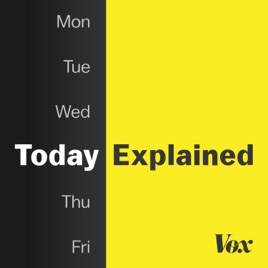
4.4
8866
1511
Today, Explained
Vox

4.8
23307
396
Pod Save the World
Crooked Media
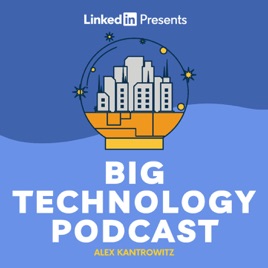
4.7
256
270
Big Technology Podcast
Alex Kantrowitz

4.5
14487
1872
Bannon`s War Room
WarRoom.org
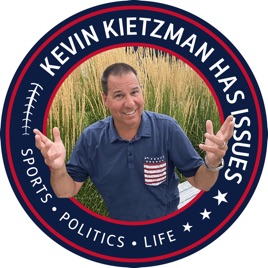
4.2
697
118
Kevin Kietzman Has Issues
Kevin Kietzman
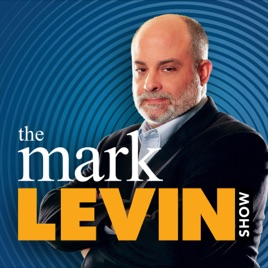
4.6
21333
1802
Mark Levin Podcast
Cumulus Podcast Network
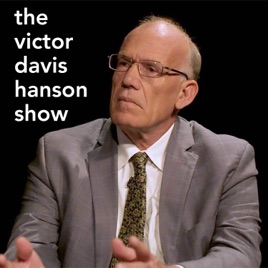
4.9
6259
528
The Victor Davis Hanson Show
Victor Davis Hanson and Jack Fowler

4.8
154
299
Future Hindsight
Future Hindsight
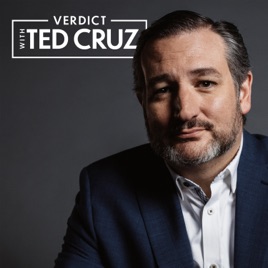
4.6
42015
384
Verdict with Ted Cruz
Premiere Networks
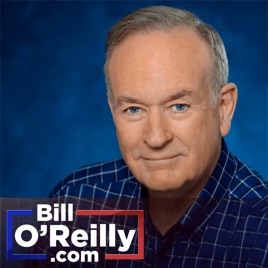
3.6
11119
2000
Bill O’Reilly’s No Spin News and Analysis
Bill O'Reilly



